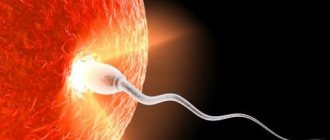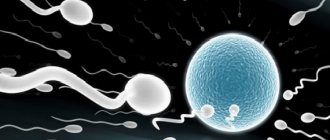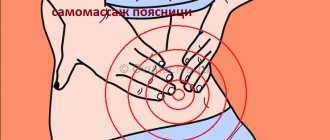Mechanisms of ovulation
At the beginning of each menstrual cycle, one follicle in the egg is exposed to follicle-stimulating hormone. When the follicle, under its influence, reaches a certain size and becomes active, another hormone is activated - luteinizing hormone. It promotes the maturation of the egg. The follicle then ruptures and the egg leaves it. This moment is called ovulation. Now the female reproductive cell is available for sperm entering the uterus, conception can occur. In the absence of sexual intercourse during ovulation, the unfertilized egg is destroyed during the first day.
https://youtu.be/c8SLXD3f_gc
Ovulation - what is it?
Ovulation is the process when the egg begins to mature and then the follicle is released. This moment usually occurs on days 12-16 of the monthly cycle, provided that for a woman it lasts 28 days. For many women, it occurs earlier than expected or, conversely, later. The main thing is that during ovulation a woman has every chance to conceive a child. If this does not happen, the egg dies and is released simultaneously with menstruation.
Chances of getting pregnant during ovulation
The chance of getting pregnant during ovulation is approximately 33%. Fertilization can occur not only during the ovulatory, or fertile, phase. One day before the release of the egg into the fallopian tube, the probability is 31%, two days before - 27%, three days - 16%. This is explained by the fact that sperm can remain in a viable state in the uterine cavity for several days. They simply wait for the egg to be released and inseminate it.
The situation is different with the second phase of the menstrual cycle. Once the egg is destroyed, pregnancy is not possible. But there are times when ovulation is delayed. This occurs when the first phase of the menstrual cycle lengthens. It lengthens with colds, stress and injury, and prolonged exposure to the sun. On average, with a 28-day cycle, ovulation occurs on the 14th day. If the cycle is disrupted, ovulation shifts and occurs later. Planning pregnancy becomes problematic. Cases of disruption of a significant shift in hormonal levels have been described, in which two eggs can be released from different ovaries in one cycle. Pregnancy can occur on any day of the cycle, even during menstruation.
You may not need to use protection during your period
This is one of the most common myths that leads to negative consequences. Menstruation is the rejection of the functional lining of the endometrium, which is excreted from the woman’s body with menstrual flow. Yes, the risk of getting pregnant during this period is lower than, for example, in the middle of the cycle, which in theory occurs when ovulation occurs. However, the maturation of the egg can shift within the cycle - both to an earlier period and to a later one, right up to the onset of menstruation. Accordingly, by having unprotected sex during your period, you still expose yourself to the risk of an unplanned pregnancy, since only a gynecologist can say with certainty whether ovulation has already occurred.
A woman’s body does not always “give out” one egg per cycle; sometimes two mature - and at different speeds. Accordingly, ovulation of the first may occur in the middle of the cycle, the second - at the end.
During menstruation, the uterus is especially at risk of various infections - after all, one of the membranes is rejected. Therefore, if you and your partner have not ruled out the risk of various infections, be especially attentive to methods of protection, use a condom.
How often should you have sex when trying to conceive?
Couples in normal health do not need to calculate the onset of the ovulatory phase. With constant sexual intercourse for 3 months, conception occurs. It is considered normal if the chance of getting pregnant occurs within a year with unprotected regular sex. If conception does not occur by this time, the man and woman should check their reproductive health.
The optimal frequency of sexual intercourse is once every two days. During this period, the amount of seminal fluid and sperm, even in men with changes in the spermogram, returns to normal. Sex for the purpose of conception can be practiced both during ovulation and two days before it. Sperm that enter the uterus remain viable for about two days, and are able to catch the moment the egg leaves the follicle.
Douching is a good method of emergency contraception.
Let's start with the fact that douching is not a method of contraception. And it’s not a method at all. It is believed that injecting a weak vinegar solution into the vagina can somehow prevent pregnancy. In fact, sperm penetrates very quickly into the uterus, and it is impossible to wash it out. The effectiveness of douching as a prevention of STDs after unprotected contact has also not been proven. But it’s easy to get a burn to the vaginal mucosa.
At the moment, the most reliable remedy against unwanted pregnancy and STDs is a condom. But if unprotected sexual intercourse does occur, consult a doctor - he will select a post-coital contraceptive for you and refer you for tests if there is a risk of an STD. Please note that the effectiveness of post-coital contraceptives decreases with each hour that passes after intercourse.
Methods for detecting the onset of ovulation
Since ovulation is the most favorable time for conception, those wishing to become pregnant should learn to identify this phase in themselves.
Some women experience painful cramps in the lower abdomen during ovulation. They are caused by the rupture of the follicle and the release of the egg from it. Also, for many representatives of the fairer sex, sexual desire increases during this phase. These methods cannot be considered reliable methods for determining ovulation.
When examined in a gynecological chair, the doctor notes an increase in mucus in the cervix and an increase in its viscosity.
You can independently determine the period of ovulation by measuring your basal body temperature daily. Normally, it is 0.5 degrees higher than body temperature, measured in the armpit. During the period of ovulation, it is 37.5 C. If pregnancy does not occur, the temperature drops again to its original level. If the egg has been fertilized, the temperature remains elevated.
If you keep a diary of basal temperature, you can approximately calculate the day of ovulation in the menstrual cycle. If a woman has regular periods, based on the diary data, you can accurately predict the most favorable days for conception.
For the convenience of women, a method was invented to determine the level of luteinizing hormone in urine using test strips. You can buy them at the pharmacy. Before ovulation, a faint line appears on the strip. Closer to this phase, the color of the second stripe becomes more intense.
Ultrasound diagnostics can be performed in a medical facility. It is able to show the development of a maturing follicle and its rupture. It is an accurate method for diagnosing ovulation. Used to determine the exact time of in vitro fertilization or artificial insemination.
Factors negatively affecting conception
- Changes in hormonal levels. Due to hormonal shifts, ovulation may not occur at all, or may be delayed. This factor can be successfully corrected by a gynecologist by prescribing therapy.
- Changes in spermogram. Caused by a decrease in sperm motility, or a deterioration in their quality. Men need to give up bad habits, start leading an active lifestyle, enrich their diet with foods rich in vitamins A and E, and folic acid. Couples should avoid daily sex when planning pregnancy. It is optimal to have sex every other day
- Chronic inflammatory diseases of the pelvic organs. A common cause of disruption of the movement of the egg from the follicle into the uterine cavity. As a result of inflammation, adhesions are formed; they are a mechanical obstacle to the path of germ cells. Occurs after an abortion, acute appendicitis in childhood, adnexitis, chronic infections of the genitourinary tract
- Immunological incompatibility of partners. Rarely encountered, it is diagnosed by performing a postcoital test. Treated with medications
- Psychological aspects. In women, with excessive emphasis on the problem of pregnancy, fertility is often impaired. In these cases, the help of psychotherapists is effective.
“Subtleties” of conception or why it doesn’t work
So, a woman and a man really want to have a child, but how can we increase the likelihood that conception will occur as quickly as possible? Sometimes it’s just enough to have sex correctly and know all the “subtleties” of conception! The main thing is to catch ovulation! Determine the day of ovulation (when the egg leaves the follicle into the abdominal cavity). This usually occurs on days 14-16 from the first day of the last menstruation (with a cycle of 28-30 days). But this is usually the case, but in reality, it happens differently; ovulation can occur even during menstruation (but this is rather an exception, but it still happens). A mature egg lives from 12 to 24 hours, and only during this time can fertilization occur. And only a woman who carefully monitors her body can guess for herself that the time has come for ovulation. In pre-ovulation days and on the day of ovulation, a woman may feel slight nagging pain in the lower abdomen, breast tenderness, increased libido, feel slight pain in one of the ovaries, and also notice that daily discharge has become similar in consistency to raw egg white. Have sex three times a week. You will do the wrong thing if you direct all your energy to sex at the time of expected ovulation and forget about intimacy during the “safe days”; it would be more correct to start having sex immediately after the end of the menstrual period. Since we have already understood that ovulation can occur on any day, especially if the girl does not have a regular menstrual cycle, therefore, sex 3 times a week will help not to miss the very moment when conception is possible! But no need to go to extremes! It is strictly not recommended to have sex every day, because... Daily ejaculations will negatively affect the quality and quantity of sperm. Daily sexual intercourse makes the male body sterile. A man needs up to 48 hours to accumulate enough sperm for fertilization. And from this point of view, the most optimal regimen, according to sexologists, is three times a week, or in other words, about once every two days. Various studies by scientists have shown that abstaining from sex for more than seven days can cause a decrease in male fertility (ability to bear children): with abstinence, the amount of sperm increases, but not its morphological characteristics. When it comes to sperm, it is true that quality is more important than quantity! Thus, the established opinion that abstinence is necessary before conception is not entirely correct. It's better to have sex before ovulation, not after. There is a short period of time during your cycle when you can get pregnant. After ovulation, the egg can be fertilized within about 24 hours. Sperm, in turn, live from three to five days. This is why sex 2-3 days before ovulation increases the chances of successful conception. But, I repeat, there is no need to wait until the day of ovulation to make love, since the partner’s sperm will live in the woman’s body for several days and the woman will not miss the chance to get pregnant. Sex should be fun! Thanks to desperate attempts to get pregnant, sex in a couple can become mechanical and stop bringing pleasure. Meanwhile, this also plays an important role. It turns out how aroused you are can affect your chances of conceiving. Many researchers claim that orgasm increases your chances of getting pregnant! Don't focus on wanting to get pregnant! Don’t stress, don’t get hung up, don’t fall into despair, “turn off” what is called your head and relax. A healthy and reasonable desire for pregnancy helps conception much more than tense, gloomy calculation of cherished days, hysterics over the arrival of menstruation, blaming each other for the inability to conceive. Is posture important? The best position for those who want to become parents is missionary. It makes sense to place a pillow under your buttocks during sex. The likelihood of pregnancy is reduced if, after ejaculation, sperm immediately flows out of the vagina or simply does not come into contact with the cervix. Therefore, say, the “woman on top” position or the standing position cannot be considered optimal for conceiving a child, since in such positions sperm flows out easily (although conception is by no means impossible in these positions). Also keep in mind that the first portion of ejaculate contains the largest number of sperm. Many people believe that after intercourse a woman should lie with her legs raised for half an hour. True, the effectiveness of this method has not been scientifically proven, but you can still try it to be more likely. But if you look at this issue from a medical point of view, it turns out that sperm have a special means of transportation - a flagellum, so couples do not have to worry about the position they take. When seminal fluid enters the vagina, millions of sperm rush up to the uterus and are there in just five minutes. Only diseases of the cervix can prevent them. And the fact that a small part of sperm leaks out after sexual intercourse is completely natural, and there is no need to worry about this. Be careful with oral sex! It turns out that saliva has a negative effect on sperm, as most studies have shown. Be careful with sports! Increased physical activity causes a protective reaction of the body: it has no time for pregnancy, it devotes all its energy to muscle development. So the chances of conceiving are somewhat reduced. In addition, excessive muscle tension can lead to a reflex change in the contractile activity of the fallopian tubes and the uterus itself, and this is both an obstacle to the meeting of sperm and egg, and reduces the chances of attachment of the fertilized egg to the uterus. So it makes sense, a couple of months before the expected conception, to reduce the load so that it remains at a level that does not strain the body too much, and it is also important not to overly pump the abs. Stop dieting! Eating low-calorie foods or not eating enough food and, as a result, losing weight, negatively affects the hormones responsible for fertility. When planning a pregnancy, it is better to say goodbye to the diet at least several months before trying to conceive. What's the probability? For most couples who are planning to conceive, the chances of getting pregnant in any given month are approximately 15% to 25%. According to statistics, a healthy married couple who has sex 2-3 times a week without contraception usually takes six months to a year to conceive. So don’t worry if you don’t succeed the first time. Average chances of getting pregnant by having unprotected sex: 25% of couples manage to conceive in the first cycle 40% within the first three months of trying 65% within 6 months of trying 75% within 9 months85% within the first year90% within 18 months Difficulties in conceiving. For conception, a combination of certain circumstances is necessary. Here are just a few of the factors that sometimes cause such a delay. — A woman’s lack of weight (especially if she weighs less than 50 kg) can interfere with ovulation. — Excess weight in a woman often causes an increase in estrogen levels, which leads to cycle irregularity and ovulation disorders. — One of the factors for delayed or absent ovulation may be psychological stress in a woman. And also studies have shown that the less stress and troubles a man experiences, the more germ cells his testicles produce. — Vaginal microflora must be balanced . Artificial vaginal lubricants (lubricants, etc.) often contain spermicides - substances that destroy sperm. Vaginal sprays and douching affect the acidity of the vagina, which can make it difficult for sperm to survive. In addition, douching (among other things can lead to infections and inflammation), the use of vaginal aerosols, scented pads and tampons, etc. can disrupt the pH balance of the vagina and can cause allergic reactions that kill sperm, as well as flush out the cervical fluid, making it impossible for sperm to move towards the egg. — The effect of caffeine and nicotine on fertility has not yet been studied in detail, however, there is noteworthy data indicating that these substances can reduce spermatogenesis, in other words, delay the formation of sperm and impair their motility, as well as complicate the processes of fertilization and egg implantation . Therefore, both partners need to at least limit, or better yet, completely abandon coffee consumption and smoking. Try to reduce the amount and strength of your coffee and tea. And also do not forget that there are also other caffeine-containing drinks (for example, Coca-Cola, etc.). — Taking antibiotics in the recent past may have caused disturbances in the bacterial flora in the vagina, which can interfere with conception. After completing antibiotic treatment, a woman needs to use contraception for 1-2 cycles, and only then think about conception. But if a man was treated with antibiotics, then he should abstain for 3 months, because sperm mature in approximately 70-90 days. - This may seem very funny to some, but still, the right men's trousers and underwear can really, to a certain extent, increase the chances of success if you are planning to conceive a child. It’s quite simple to explain: the optimal temperature for sperm maturation is about 2 degrees below the general body temperature. To ensure this temperature in the testicles, they need to hang freely in the scrotum. But wearing tight underwear or trousers, elastic panties, as well as underwear made of synthetic materials increases the temperature of the testicles, and this increase in temperature is sometimes so significant that it can reduce the formation of sperm and impair the ability to fertilize (mature sperm simply cannot survive or even cannot form from such a high temperature). Studies to establish the relationship between the type of underwear and fertility have shown that men who wore boxer shorts had a higher sperm count than those who wore tight underwear. For the same reasons, men who are concerned about procreation are not recommended to lie in a hot bath, steam in a sauna, use a heated car seat, or be overweight. Therefore, avoid anything that directly or indirectly leads to an increase in temperature in the groin and perineum area. Try to wear loose cotton underpants. At home and wherever possible, wear loose clothing. Also, if a man sits for long hours, the temperature in the groin area certainly rises. Therefore, men, by the nature of their professional activities, who lead a predominantly sedentary lifestyle, must get up and walk from time to time so that the testicles move away from the hot body. If it is hot, it is recommended to use special breathable mats on the car seat to avoid overheating and sweating in the groin and perineum. - Attention to the genitals! In addition, both partners should protect themselves from hypothermia and in every possible way avoid situations in which overheating or hypothermia of the genital area may occur. It is also important not to allow the genitals to become numb (due to long or uncomfortable sitting or very tight clothing), because Poor circulation in this area negatively affects reproduction.
If pregnancy does not occur... First of all, you should remember that after stopping taking oral contraceptives, at least a month must pass (regardless of the duration of taking the OC) until your ovulation returns to normal. In general, in most cases, fertility is restored 2-3 months after stopping oral contraceptives. For women under 30 years of age, experts recommend not to worry about the absence of pregnancy during a year of regular sexual activity without contraception. Women aged 30 to 35 years old should visit a doctor 6-9 months after unsuccessful attempts to get pregnant, but 35-40 year old women should consult a doctor after 6 months of unsuccessful attempts, and women over 40 years old - after three months of having sex without protection. If your pregnancy does not occur within this time, then it makes sense for you and your husband to visit the necessary specialists. And based on your general examinations, the doctor can recommend a specific way to solve this problem for you. Good luck!
Tips for preparing for conception
- Quitting alcohol, smoking, and caffeine. Increase the share of fresh fruits and vegetables in your diet. It is necessary to visit a gynecologist to prescribe vitamins and minerals
- Have sex every other day. This will increase the concentration of sperm in the seminal fluid, making sperm more active
- Temporary refusal of intimate hygiene cosmetics. They are to some extent capable of changing the pH of the skin and mucous membranes and impairing sperm motility
- The correct position for conception. If the couple does not have health problems, the chances of becoming pregnant are high in any position. The main thing is that ejaculation occurs deep into the vagina. If the sperm count is insufficient, every milliliter is important. A suitable position is in which the woman lies on her back, or any other position in which the reverse flow of sperm after intercourse is excluded
- No stress factors. A woman's ability to conceive is greatly influenced by psychological factors. If a woman is constantly stressed at work, she should take a vacation. It is advisable to distract yourself from obsessive thoughts about the difficulty of conceiving, possible infertility
- Review of medications. If one of the couple has a chronic disease accompanied by constant use of medications, it is worth checking with the doctor about the effect of the drug on the ability to conceive and the future fetus
Pregnancy without ovulation
Conception is impossible without the release of the egg into the fallopian tube. This is explained by the fact that sperm have nothing to fertilize. Lack of ovulation is the cause of female infertility.
Many young mothers are interested in whether it is possible for a nursing woman to become pregnant on the day of ovulation. The answer is negative, because during lactation there is no ovulation. And this is not a pathology, but a protective natural mechanism created to prolong the baby’s feeding.
Carefully selected hormonal therapy often helps women regain fertility. If this does not help, use a radical method. On the day when ovulation is supposed to occur, women are injected with a drug that causes accelerated maturation of the follicle and the further release of the egg from it.
Is pregnancy possible on safe days?
Is it possible to get pregnant outside of ovulation? This question interests all girls. Pregnancy without ovulation is not possible. To do this, the follicle needs to burst and the finished egg begins to come out, and until this happens, there will be no conception. But the female body is not ideal, so it can malfunction. Favorable days for conception may come late or start earlier, and the girl will not even suspect it. Therefore, if a child is not yet included in her plans, she needs to constantly protect herself.
You can become pregnant unexpectedly only in the following cases:
- If a couple of days before the onset of favorable days, unprotected sex happened. Male sperm can live in a female body for 5-7 days. If the follicle bursts these days, then pregnancy occurs one hundred percent.
- An unplanned pregnancy may occur if you stop taking birth control pills.
- Conception after menstruation increases significantly if the cycle is less than 28 days, or is constantly malfunctioning.
- For many girls, the favorable time for conception occurs several times a month. This phenomenon is not normal and therefore conception is not possible on the day of ovulation.
- You can also get pregnant if you incorrectly calculate the days of onset for accurate conception.
In addition, the following factors may also influence:
- If the female body is unable to work, then conception will be very difficult, since fertilization is influenced by many factors.
- The body often experiences various stresses. They directly affect the ability to get pregnant.
- Conception also depends on the man. If he does not have high-quality sperm, conception is impossible.
As already mentioned, sperm can live in a woman’s body for seven days, but a woman’s egg can live for only 48 hours. If intimacy between a man and a woman occurs a couple of days before ovulation, then the chances of conception are very high. If the acidity in a woman’s vagina is normal, then sperm live long and become even more active.










